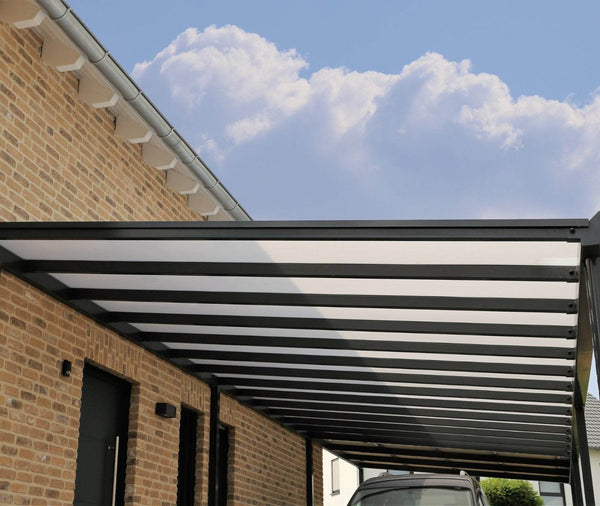Enhancing Public Spaces with Covered Walkways and Waiting Area Canopies
Jun 30, 2024
In modern urban design, creating functional and inviting public spaces is essential for community well-being. Covered walkways and waiting area canopies are increasingly becoming integral components of these spaces. They not only provide shelter but also enhance the overall aesthetic and usability of public areas. In this engaging and informative guide, we will explore the numerous benefits, design options, and innovative uses of covered walkways and waiting area canopies.
The Importance of Covered Walkways
Covered walkways serve as essential connectors between buildings, providing safe and comfortable passage for pedestrians. They are particularly valuable in places like schools, hospitals, shopping centres, and parks. Here’s why they are so important:
Weather Protection
One of the primary functions of covered walkways is to shield pedestrians from adverse weather conditions. Whether it’s rain, snow, or intense sunlight, a covered walkway ensures that people can move around comfortably and safely.
Enhanced Safety
Covered walkways contribute to pedestrian safety by providing a defined path and reducing the risk of slip-and-fall accidents caused by wet or icy surfaces. They also offer additional security by creating well-lit paths that are easy to navigate.
Improved Accessibility
For individuals with mobility challenges, covered walkways offer a smooth and accessible route between buildings. This is particularly important in places such as hospitals and care facilities where accessibility is paramount.
Transforming Waiting Areas with Canopies
Waiting areas in public spaces can often be uncomfortable and exposed to the elements. Installing canopies over these areas significantly improves the experience for those who need to wait. Here are some benefits:
Comfort and Shelter
Waiting area canopies provide much-needed shelter from rain, wind, and harsh sunlight. This makes waiting more comfortable and can reduce stress and frustration for people.
Aesthetic Appeal
Well-designed canopies can enhance the visual appeal of public spaces. By integrating stylish and modern canopy designs, you can create inviting and attractive waiting areas that complement the surrounding architecture.
Versatility and Functionality
Canopies can be customised with seating, lighting, and other amenities to improve functionality. For example, bus stops, train stations, and airports can benefit from canopies that include benches, digital information displays, and overhead lighting.
Design and Customisation Options
The design and customisation options for covered walkways and waiting area canopies are vast. Tailoring these structures to meet specific needs and aesthetic preferences can make them even more effective.
Materials and Structures
Choosing the right materials is crucial for durability and aesthetics. Common materials include steel, aluminium, polycarbonate, and fabric. Each material has its own advantages, such as strength, flexibility, and transparency.
Colour and Style
Customising the colour and style of walkways and canopies can help them blend seamlessly with the existing environment or stand out as architectural features. Consider using colours that match or complement the surrounding buildings and landscape.
Additional Features
Incorporating additional features such as solar panels, green roofs, or integrated lighting can enhance the functionality and sustainability of walkways and canopies. These features can also contribute to energy savings and environmental benefits.
Case Studies and Success Stories
Real-life examples of covered walkways and waiting area canopies can provide inspiration and demonstrate their practical benefits:
Success Story 1: A University Campus
A university in Birmingham installed covered walkways connecting various academic buildings. These walkways provided students and staff with sheltered paths during inclement weather, improving campus accessibility and safety. The walkways were designed with modern, sleek materials that complemented the university’s architecture.
Success Story 2: A Public Hospital
A public hospital in Manchester added covered walkways and canopies to enhance patient and visitor experiences. The canopies in waiting areas included comfortable seating and digital displays showing appointment information. This addition significantly improved patient satisfaction and reduced stress levels while waiting.
Success Story 3: A Shopping Centre
A large shopping centre in London introduced covered walkways linking different sections of the complex. These walkways provided shoppers with a seamless and comfortable experience, regardless of the weather. The design incorporated vibrant colours and artistic elements, making the walkways an attractive feature of the shopping centre.
Installation and Maintenance Tips
Proper installation and regular maintenance are crucial for ensuring the longevity and effectiveness of covered walkways and waiting area canopies. Here are some tips:
Easy Installation Tips
- Professional Installation: Hiring professionals ensures that walkways and canopies are installed safely and comply with local regulations.
- Secure Anchoring: Use appropriate anchoring methods such as concrete foundations or ground screws to ensure stability and safety.
- Follow Guidelines: Adhere to manufacturer’s instructions and guidelines for assembly and installation.
Cleaning and Maintenance
- Regular Cleaning: Keep walkways and canopies clean by regularly washing surfaces and removing debris. This not only maintains their appearance but also prevents damage.
- Inspections: Conduct routine inspections to identify and address any signs of wear or damage, such as rust, loose fittings, or cracks. Prompt repairs can prevent further deterioration.
- Protective Coatings: Apply protective coatings to metal parts to prevent rust and corrosion. This can extend the lifespan of the structures.
Conclusion
Covered walkways and waiting area canopies play a vital role in enhancing public spaces by providing shelter, improving safety, and adding aesthetic value. By carefully selecting materials, customising designs, and incorporating additional features, these structures can be tailored to meet the unique needs of any environment. Real-life success stories demonstrate the practical benefits and transformative impact of these installations. Explore Falcon Canopies' extensive range of solutions to find the perfect covered walkways and canopies for your public space, and take the first step towards creating more comfortable and inviting environments today.


